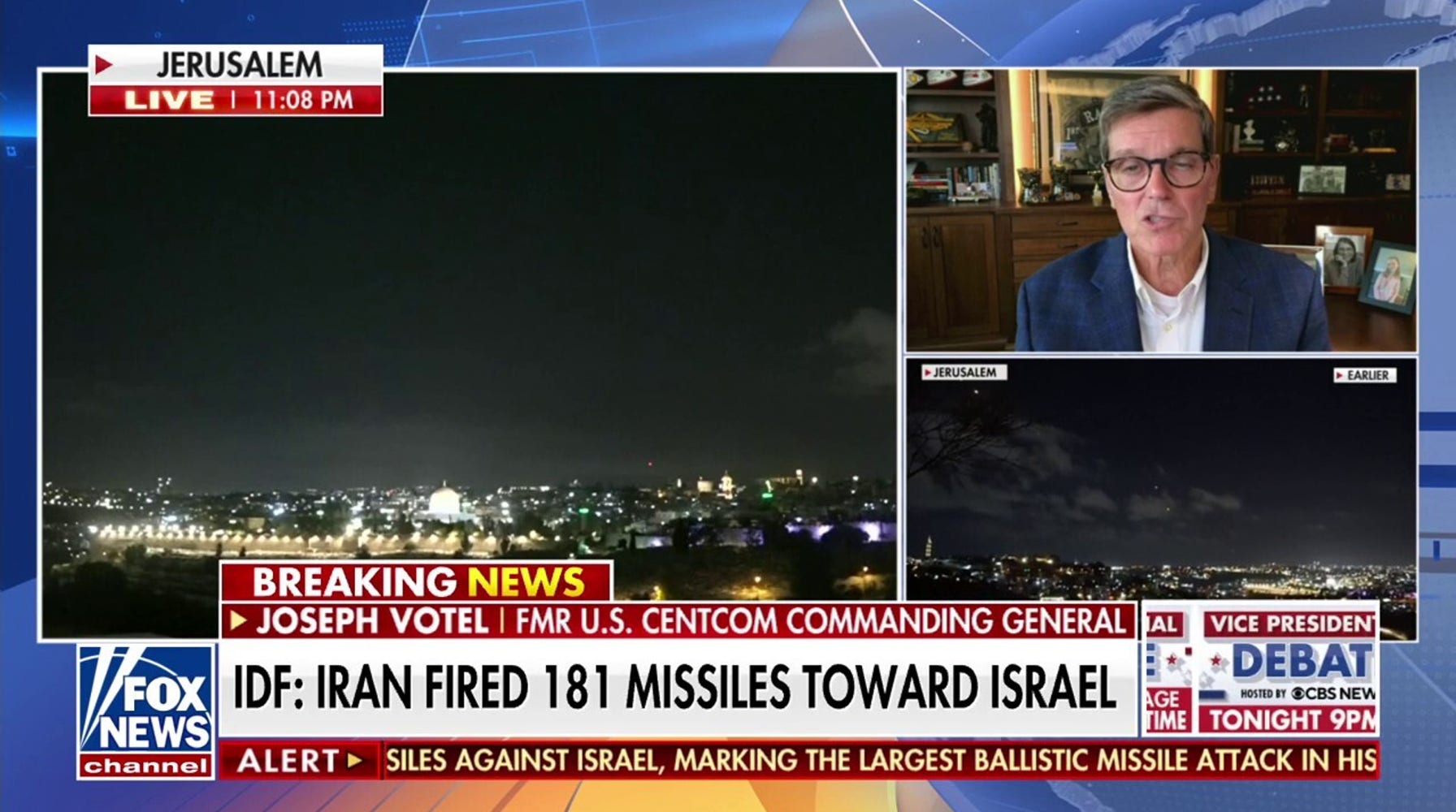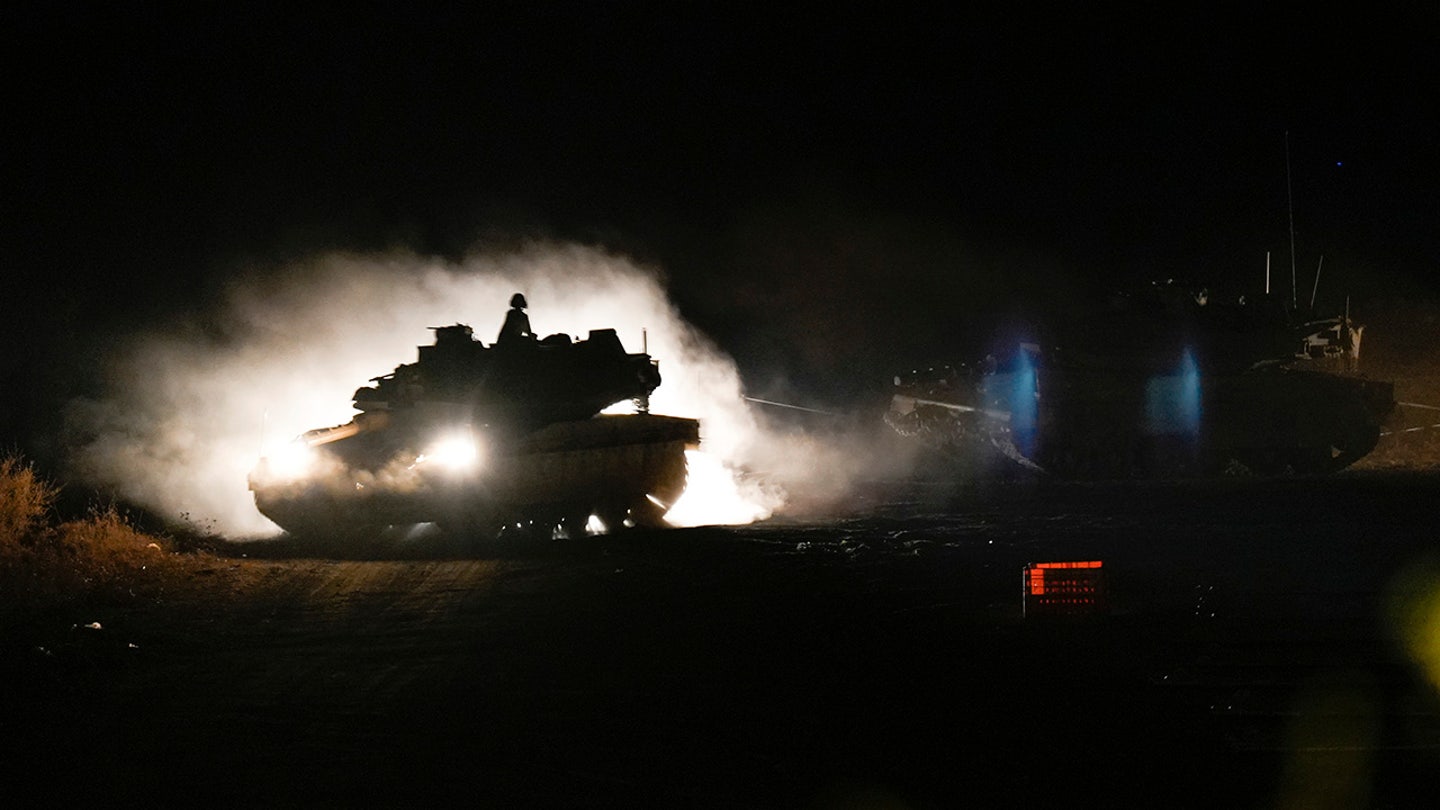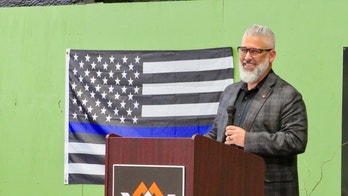In 1983, the U.S. failed to retaliate for the suicide bombing of its Marine headquarters in Beirut. This decision emboldened Iran and its terrorist proxy groups, including Hezbollah, which have plagued the Middle East ever since.
On a fateful October morning in 1983, a suicide bomber in a Mercedes truck crashed through security and penetrated the lobby of the four-story Battalion Landing Team headquarters in Beirut, where some 350 American soldiers, sailors, and Marines were asleep. The blast, which investigators later determined exceeded 12,000 pounds of TNT, collapsed the building into a pile of broken concrete and twisted rebar.
"It was," as one survivor later recounted, "like every atom in the universe blew apart."

The Beirut Bombing: The Roots of Iran's Terrorist Proxy War
The screams from buried victims prompted one of the greatest rescue efforts in modern memory, as troops attacked the rubble pile with shovels, Ka-Bar knives, and their bare hands.
For those Marines trapped underground, it was hell. Among them was Chaplain Danny Wheeler, who spent five hours buried in a concrete crypt before rescuers finally found him. "The next thing I knew, I felt a hand on my hand," Wheeler recalled. "I held it."

The Beirut Bombing: The Roots of Iran's Terrorist Proxy War
Wheeler was the last survivor rescued, and one of the lucky few. All told, the bombing killed 220 Marines, 18 sailors, and three soldiers, wounding another 112.
The attack shocked President Ronald Reagan, who initially resisted pressure from many in Congress and the public to pull American forces out of Lebanon. In a nationally televised speech on Oct. 27, the president instead recommitted America to stabilizing the area.

The Beirut Bombing: The Roots of Iran's Terrorist Proxy War
"Brave young men have been taken away from us. Many others have been grievously wounded. Are we to tell them their sacrifice was wasted?" Reagan said. "We’re a nation with global responsibilities."
But that resolve faded in early 1984, when the Lebanese national government and military ultimately collapsed. On Feb. 7, Reagan announced that he planned to send American troops back to their ships.

The Beirut Bombing: The Roots of Iran's Terrorist Proxy War
In an effort to avoid drawing attention to America’s sudden reversal and withdrawal, he skipped the televised speech, instead releasing a written statement to reporters. On March 30, Reagan notified Congress that he planned to officially terminate America’s peacekeeping mission.
This withdrawal created a vacuum that Hezbollah capitalized on to gain power and influence, eventually becoming the dominant political party in Lebanon.

The Beirut Bombing: The Roots of Iran's Terrorist Proxy War
Additionally, America’s abrupt departure coincided with the administration’s refusal to retaliate for the bombing of the U.S. Embassy or the Marine headquarters. In the wake of the October bombing, members of the National Security Council drew up a plan to target Iran’s terror camp in the Bekaa Valley.
Reagan initially supported it, but Defense Secretary Caspar Weinberger convinced the president to backtrack, arguing that retaliatory action demanded the type of conclusive proof of the identity of the attackers that is often elusive in terror attacks. "I’m not," Weinberger later said, "an eye for an eye man."

The Beirut Bombing: The Roots of Iran's Terrorist Proxy War
Whatever the merits of Weinberger’s thinking, the results of Reagan’s decision were calamitous. For the small cost of a truck, some explosives, and the single life of a terrorist, Iran successfully drove the U.S. from Lebanon and suffered no consequences.
That was the critical lesson our enemies learned from this tragedy, a fact the CIA zeroed in on in a 1987 report. "Many Iranian leaders use this precedent as proof that terrorism can break U.S. resolve."

The Beirut Bombing: The Roots of Iran's Terrorist Proxy War
The agency also concluded that Iranian leaders exploited the uncertainty that had troubled Weinberger. "Compared with overt military attacks, terrorism and sabotage also offer a degree of plausible deniability and present the United States with a less clear-cut justification for retaliation."
America’s failure to respond to the killing and wounding of hundreds of our diplomats and service members in Beirut served as a green light for Iran to continue and even escalate its proxy war of terrorism that menaces the region.

The Beirut Bombing: The Roots of Iran's Terrorist Proxy War
And it is a price America, Israel, and our allies continue to pay four decades later.
Col. Timothy Geraghty, who was the commander of the Marines in Lebanon in October 1983 and later worked for the CIA, understands that better than anyone. "Our timidity," he concluded, "whetted the jihadists’ appetite."

The Beirut Bombing: The Roots of Iran's Terrorist Proxy War
The Beirut bombing was not just a tragedy but a turning point in the history of terrorism. It showed that even the most powerful nation in the world could be deterred and driven from the field by a small group of terrorists armed with little more than a truck and a bomb.
It is a lesson we have paid dearly for, and one we must never forget.










